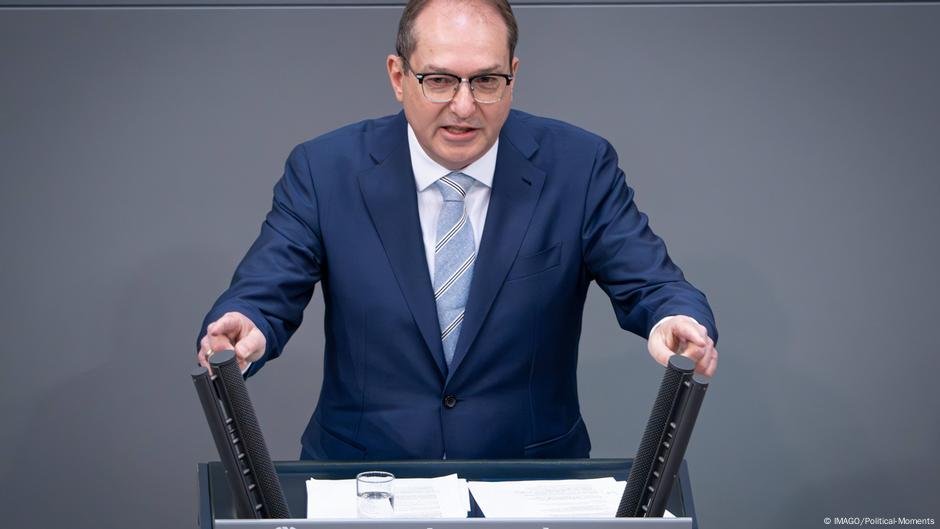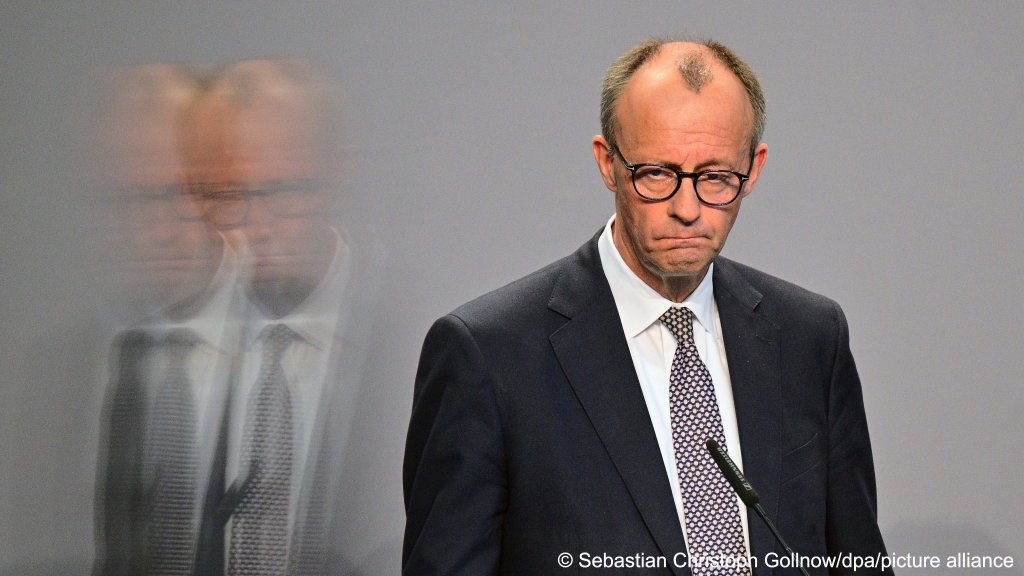Germany's Interior Minister Alexander Dobrindt has traveled to the Polish capital Warsaw to discuss disagreements over new migration policies enacted along the German-Polish border. While both countries agree on minimizing irregular entries, Poland appears to feel disproportionately burdened after Germany's introduction of border checks. The policy is equally divisive at home.
Interior Minister Dobrindt, who only took office a month ago following the formation of the new German government, is tasked with imparting the reason behind Germany's new course on immigration to his Polish counterpart, Tomasz Siemoniak.
The new German government has pledged to crack down on irregular migration, chiefly by doubling down on border checks and denying entry to any migrants who aren't pre-authorized to gain entry to Germany -- even if their intention for entry is to apply for asylum.
Poland -- alongside several other neighboring countries -- has been critical of Germany since the new government started turning away asylum seekers trying to come to the country by crossing any of its land borders.
Germany's dpa news agency cited that Polish Prime Minister Donald Tusk was "notably displeased with the policy during German Chancellor Friedrich Merz's visit to Warsaw in May."

Germany: a safe country surrounded by safe countries
While asylum is enshrined as a human right under international law, Berlin argues that Germany is surrounded by safe countries as neighbours, and that anyone traveling to Germany with the intention of seeking asylum would have opportunities in any of its neighboring countries to lodge their claim there first.
Broadly speaking, asylum seekers are required to file their request in the first safe country they reach, and under EU law this also means that the country of first arrival in the block should be in charge of processing their applications.
Some EU member states, however, feel disproportionately burdened by this approach.
In addition to southern EU countries like Spain, Italy and Greece, which have the highest rate of irregular arrivals, Poland says it also feels that such policies spell additional problems, as the Eastern European nation is part of the bloc's external border.
Read AlsoGerman government and police defend harder line on migration policy and border checks
Common ground amid disagreement
After meeting with Dobrindt on Monday, Polish Interior Minister Siemoniak indicated that there had been progress on disagreements involving Germany's fortified border policies.
He said that two ministers both wished to minimize the effects of Germany's border checks for travelers on either side of the border.
"We have discussed how we can make the situation as harmonious as possible for all road users at the borders," Siemoniak explained, adding that the safeguarding of the European Union's external borders was the biggest challenge in the fight against irregular migration, and that ensuring this was a goal shared both by Poland and Germany.
"Only together can we defy the challenges of the modern world," he added.

Read AlsoPolish man sues Germany over border checks
Focus on strengthening EU's external borders
German Interior Minister Dobrindt also praised Poland's overall cooperation, especially on the subject of protecting the EU's external border.
"Poland is doing an extraordinary amount at its external border in the fight against irregular migration and for the security of Europe," said Dobrindt, highlighting Poland's commitment to making sure that migrants crossing on its border with Belarus are kept at bay.
The two sides agreed in a statement that "migrants are currently being used in a hybrid war triggered by Russia and Belarus," confirming earlier statements by the EU and previous administrations that in the shadow of the war on Ukraine, Russian President Vladimir Putin intended to weaken Europe by trying to overwhelm the bloc with a deliberately fabricated influx of mostly Middle Eastern asylum applicants showing up at its eastern flank.
Similar sentiments have been echoed by the United States, the United Kingdom and NATO for several years now.
Read Also'Poland first, Poles first,' nationalist Karol Nawrocki wins presidential election
Border police unsure about its scope of authority
Meanwhile, there's also uncertainty about the situation at Germany's borders back home, as the new government’s policy has been running into hiccups while being rolled out.
Federal Police Commissioner Uli Grötsch said there currently was a lack of clear accountability whenever prospective asylum seekers were being rejected at Germany's borders, and that this could come to haunt officials deployed to beef up border security.
Grötsch called on Interior Minister Dobrindt to provide clarity and legal certainty for the officers deployed to the borders to be allowed to pursue the new policy of rejecting asylum seekers with impunity, telling the Rheinische Post daily newspaper that "[i]t is clear to me that the officers at the border checkpoints must not be held accountable" if any legal disputes should arise.
Grötsch also commented that "the executive branch is saying something different here than the judiciary," despite verbal reassurance from Dobrindt, saying that he is "convinced that our measures are within European law."
Dobrindt told the Funke Mediengruppe newspaper publishers that if there's any doubt, "[t]he European Court of Justice should decide on this."
According to the interior minister, a total of 3,278 people have been turned back at Germany's borders since he instructed the federal police to reject asylum seekers last month, "including 160 people who sought asylum," he added.

Cracks in coalition government
Even though the new government has only been in force for a month, there already appears to be disagreement on the issue of rejecting asylum seekers at Germany's borders, also within its own ranks:
Matthias Miersch, the parliamentary group leader of the Social Democrats (SPD), which is the junior coalition partner of Chancellor Friedrich Merz's so-called "grand coalition," said that such summary rejections would not be sustainable.
His comments came after an administrative court in Berlin ruled in favor of three Sudanese asylum seekers remaining in Germany in what Miersch believes will prove to be only the first of a slew of court proceedings to ensue should the government carry on pursuing this particular course.
"In my view, there will no longer be such blanket rejections because the courts will stop this," Miersch told the weekly Frankfurter Allgemeine Sonntagszeitung newspaper, adding that "otherwise, [the government] will lose more such court cases in the coming months."
Read AlsoGerman Cabinet approves stricter asylum measures
The burden of proof in asylum law
While this particular court decree in Berlin only applies to the case of the three Sudanese individuals, Miersch believes that higher courts and appellate procedures could establish further precedents that would render the current policy null and void.
The Berlin court had specifically ruled that without clarifying which EU state is indeed responsible for a particular asylum application, no asylum applicant should be rejected, citing Section 18, Paragraph 2 of the German Asylum Act, which states that entry to Germany may only be refused if there are indications that another state is responsible for conducting the asylum procedure.
Since the prosecution had not produced any evidence to this end, the court had to side with the plaintiffs, it said.
The Berlin court ruling meanwhile is not legally contestable but is only binding in the case of the three Sudanese nationals. It cannot be applied as case law as part of other proceedings.
Read AlsoGerman court rules turning away asylum-seekers unlawful
with dpa, AFP
